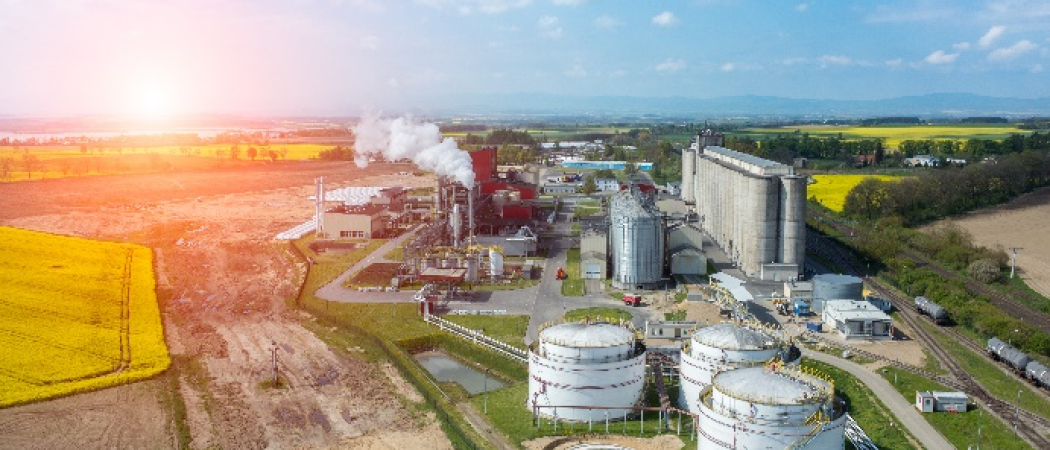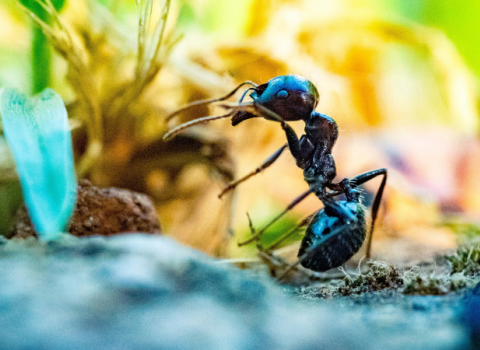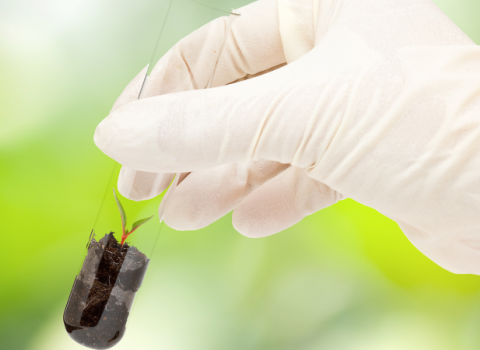Since its creation in 2014, the Bio-based Industries Joint Undertaking (BBI JU) has been delivering substantial socio-economic and environmental benefits to Europe, actively contributing to the European Green Deal.

The Bio-based Industries Joint Undertaking (BBI JU) funds diverse projects ranging from research and innovation to first-of-their-kind flagship biorefineries. (Photo copyright : zych)
Did you know that renewable biological resources such as waste, agricultural and forestry residues, and aquatic biomass can be used to produce greener everyday products such as food and cosmetics, as well as animal feed, bio-based chemicals, textiles, and biodegradable packaging?
In Europe, the bio-based industries sector is already worth €700 billion and employs 3.2 million people directly, but it faces complex and substantial technology and innovation challenges. Full deployment of such technologies onto the market requires sustainable sourcing of biomass, as well as new business models, which integrate all the economic actors across the value chains. The complexity of such an endeavour dictates the necessity to foster collaborations not only across sectors but also across borders. An institutional public-private partnership was therefore needed to ensure the full deployment of the bioeconomy in Europe.
Since 2014, the catalyst for the development of bio-based industries in Europe has been the Bio-based Industries Joint Undertaking (BBI JU), a €3.7 billion institutional public-private partnership between the European Union (EU) and the Bio-based Industries Consortium (BIC). This partnership was created to structure the sector and make the European bio-based industry more competitive and sustainable, and so far it is well on track to deliver on its promises.
Attracting investements and making Europe a global leader
‘When we launched BBI JU we aimed to put Europe firmly on the map of attractive regions to invest in bio-based industries’, says Philippe Mengal, BBI JU’s Executive Director. ‘We’ve not just achieved this, but we’ve made it a global leader. More and more companies outside of the EU are now interested in joining our growing community of more than 1,100 project participants from 33 countries and making investments in Europe. I am excited to see what the next five years will bring.’
As an example of the socio-economic impact, the first nine biorefinery flagship projects alone will generate more than 3 000 direct and 10 000 indirect jobs, well spread throughout Europe. They will also leverage €1.2 billion of investments from industry, contributing to rural revitalisation and delivering bio-based products with a lower greenhouse gas footprint.
Structuring and mobilising bio-based industry
The two main positive effects of BBI JU have been the structuring effect in organising the value chains across sectors and the innovation-driven mobilising effect of all key stakeholders. Through its 101 funded projects, this JU has been fostering new collaborations, transforming once linear value chains into more interconnected ones. The results have been impressive: BBI JU projects now expect to create 143 new cross-sector interconnections and 113 new bio-based value chains.
For example, the EFFECTIVE project has created innovative value-chains by combining different biomasses like byproducts from sugar production and beech wood to produce bio-based nylon. Bio-based nylon is a valuable material that can be used in a wide range of applications such as garments, carpet solutions and primary packaging.
Bolstering market uptake
Moreover, the BBI JU is supporting the introduction of innovations into the market by boosting large-scale production and the creation of sustainable products and materials with an equal or overall better performance than their fossil-based counterparts. Once again, the results are exceeding the initial 2020 targets: the BBI JU projects are now expecting to produce 147 new bio-based materials against the initial target of 50; and 65 new bio-based products versus the original target of 30.
A good example of these achievements comes from the blue bioeconomy. Starting from algal biomass, the SpiralG project is expected to produce bio-based food dye and bio-stimulants for plants. On top of that, the project is on track to develop functional protein-rich compounds for pet food and higher quality protein bioactive compounds for the pharmaceutical industry.
Actively contributing to the European Green Deal
Through the implementation of its mission, BBI JU is also delivering concrete socio-economic and environmental benefits to Europe. More than 80 percent of its ongoing projects support the creation of new skilled jobs in the bioeconomy, most of them in rural and coastal areas, and more than 70 percent of them expect to deliver bio-based products with lower greenhouse gas emissions than the fossil-based alternatives.
By contributing to the EU bioeconomy strategy, the EU-body is also supporting the build-up of a circular economy on the continent, and actively contributing to the European Green Deal. Two-thirds of ongoing projects contribute to reducing waste, fostering the reuse of materials and products, improving recyclability, as well as turning waste and sidestreams into added-value products.
As Philippe Mengal underlines: ‘a strong European bio-based industrial sector will help to reduce Europe’s dependency on fossil-based products, moving Europe more quickly towards the many socio-economic benefits of a greener post-petroleum society. To unlock their full potential, Europe’s bio-based industries will need to make sustainable, resource-efficient and largely waste-free use of renewable materials. These have a direct effect on spurring sustainable growth and boosting Europe’s competitiveness. And BBI JU is a key player in enabling this transition.’
To learn more about the achivements of this initiative discover the BBI JU projects’ success stories and register for the upcoming BBI JU Stakeholder Forum which will take place on December 4 in Brussels. The event will bring together the bio-based industries community and facilitate open discussion on the impact, achievements and strategic direction of the Bio-BBI JU programme, as well as the latest developments in the bio-based industries sector.





 A unique international forum for public research organisations and companies to connect their external engagement with strategic interests around their R&D system.
A unique international forum for public research organisations and companies to connect their external engagement with strategic interests around their R&D system.